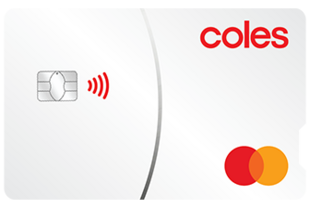
Hi, I’m a personal finance expert who loves to help you out! I’ll answer your question within a business day. Pinky swear.

Noel Whittaker is one of the world’s foremost authorities on personal finance and a bestselling author. Here, he shares his tips for being a financial winner (and not being a money loser!).
After years in the finance industry I have discovered there are certain factors that separate the financial losers from the financial winners. If you want to be a financial winner, you need to ensure you are not falling victim to the following drawbacks.
The First Drawback – Lack of Knowledge
Despite 11 years in a bank, two years with a finance company, and several years of accounting and tax work, I did not start to master money principles until I was 35 years old and running my own business. The success of the financial advice columns in most newspapers has shown there is an enormous need for more knowledge about finance.
So the first problem financial losers have is lack of knowledge, which may be coupled with a lack of desire to gain that knowledge. This often stems from low self-esteem and a feeling that because of a lack of ability – or because they were not born to a wealthy family – there is no chance for them anyway.
Another reason is that people don’t know where to go for advice. Consequently, for want of better advice, they usually turn to their mates in the pub, to their workmates, or to their bank manager. Probably none of these people have become financially successful themselves, so have little chance of giving out the right advice. Remember the people you mix with are probably in the same wealth bracket as you are. To move into a higher bracket you need to seek advice from those who are experts in their field and are already well down the road to financial success.
The Second Drawback – Lack of Foresight
We all need money to live on but it can only come from:
- Our own work
- Our money working for us
- Government benefits or charity
If you do not want to be dependent on the Government or charity, you have two options left – carry on working or get some money working for you.
Unless you are fortunate enough to win the lottery or receive an inheritance, the only money you will ever have working for you is that which you put aside for investment from your current income.
That is why the main element of financial planning is to siphon off part of all current income and invest it where it can multiply in tax-favoured growth investments such as superannuation, real estate or shares. The financial losers always INTEND to do this, but never get around to it.
The Third Drawback – The “Must-Have-It-Now” Mentality
The major secret of becoming financially independent is to live within your means. This is like sticking to a diet or exercise plan – it is simple, it sounds easy, but it is very hard in practice.
Why is this so? Because from the day we are born everything around us conditions us to want it now. As soon as a baby cries, Mum or Dad is standing there with the bottle.
Children can’t wait for Christmas or a birthday to come so that they can unwrap those exciting presents. Then the day comes and goes and they are after something else. In adult life that same human instinct is still there but now the temptations are even greater.
In almost every section of the media the advertising screams out to us: “Don’t wait! Buy now! Pay nothing for two years! Put it on lay-by!”
It all gets back to one theme: have it today – pay for it tomorrow. And pay you will!
The main difference between financial winners and financial losers is that the winners exercise discipline while the losers give in to temptation.
The financial losers get into debt and fritter money away on items of no lasting value. The financial winner always puts something away out of each pay packet and places it where it will increase in value.
The Fourth Drawback – Borrowing for Things That Lose Value
The way that people set their spending and borrowing priorities is what really sets the financial winners apart from the financial losers.
The winners keep their assets in investments such as savings accounts, shares, or property. This is in stark contrast to the financial losers’ position. Here we find little (if any) savings, loads of furniture being paid off, wardrobes full of clothes, and plenty of hire purchase accounts for motor vehicles and assorted items such as huge plasma televisions and expensive car stereos.
They have acquired most of their possessions by paying them off at very high interest rates. Thus, they have paid much more for them than the initial cost. Goods acquired in this way have virtually no resale value – the end result is a lot of money spent on items of no lasting value.
Contrast this to the money spent by smart people who borrow at relatively low rates of interest to buy items, such as houses, that increase in value.
The Fifth Drawback – Confusing Good Income with Financial Independence
Most people think that just a little bit more money would put them on easy street. Of course it seldom does.
Only in rare cases are financial problems caused by financial catastrophes such as fires or cyclones. If the average person has financial problems they are due, in almost every case, to bad money management. That is why it is self-delusion to believe that an increase in income will correct bad spending and borrowing habits.
Tax takes a big chunk of most pay rises. All an increase in income does, in most cases, is to act as a temporary repair until the next emergency. It is NOT the solution.
The Sixth Drawback – Bad Mental Attitude
Bad mental attitude has probably caused more personal problems than anything else.
It is well documented that successful people have an optimistic attitude and that unsuccessful people have a pessimistic attitude. Those people who expect the worst to happen are seldom disappointed.
The problem is that we are fed a concentrated stream of negativity from the moment we get out of bed in the morning. Many of us wake up feeling, at best, a little off. We then look at the morning paper, which tells us all the things that have gone wrong in the world in the past 24 hours and we turn on the radio for the latest news so we know what else has gone wrong. On the way to work the car radio gives us more news about murders, strikes, the infighting of politicians and 10 reasons why interest rates are going up and our economy is going down. This is interspersed with reports about clogged freeways and road accidents.
During the day we are often surrounded by complaining staff members, clients or members of our family. We return home in the evening to a pile of bills, and then watch the news on television so we can look at what else has gone wrong in the world during the day.
Then we watch some extraordinary series on television where the hero lives in a multi million-dollar mansion and is in love with his wife’s lover’s daughter. We cap this off with a violent murder show before a final look at the late evening news to see what else went wrong in the world for the day. Then we go to bed and read something to send us off to sleep.
Is it any wonder that most people have such a negative attitude towards everything?
The problem is that these vast daily doses of negativity hold people back and stop them realising their true potential. Every day people come to me with needless worries and half-truths because of conversations with other people who were only partly informed.
Some classic examples I have heard are:
“I would never own a rental house because I have heard that tenants wreck them.” (FACT: Certainly a small proportion of rental houses get damaged – the majority suffer no more than normal wear and tear.)
“I would never buy shares, they are two risky.” (FACT: While there is a degree of risk in some shares, the truth remains that shares have historically out-performed every other investment. To ignore shares is to deprive yourself of outstanding investment opportunities.)
“I would never use superannuation because the government keeps changing the rules.” (FACT: Almost all the rule changes have been positive – if you are not using super you are paying too much tax.)
These are just three examples, but the people who believe them are prevented from taking advantage of potentially great opportunities because of lack of knowledge and a bad attitude.
About the author

Noel John Whittaker is a finance expert. Noel reaches over seven million readers each week through his columns in major Australian newspapers, including The Sydney Morning Herald, Melbourne’s The Age, Perth’s The Sunday Times and Brisbane’s The Sunday Mail. Noel has written 20 bestselling books that have sold over two million copies around the world. His book Making Money Made Simple was named in the top 100 of the most influential books of the last century.

Pauline Hatch
Pauline is a personal finance expert at CreditCard.com.au, with 9 years in money, budgeting and property reporting under her belt. Pauline is passionate about seeing Aussies win by making their money – and their credit cards – work smarter, harder and bigger.
You might be interested in
Recently Asked Questions
Something you need to know about this card? Ask our credit card expert a question.
Ask a question
Hi, I’m a personal finance expert who loves to help you out! I’ll answer your question within a business day. Pinky swear.


















